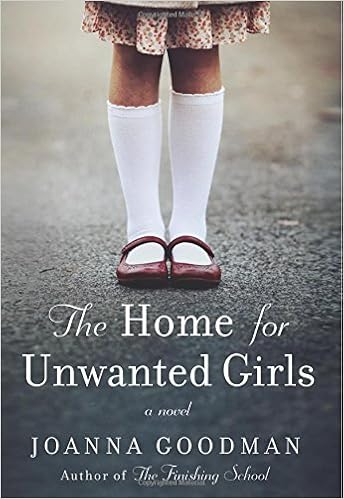 In 1950s
Quebec, Maggie Hughes, a 15-year-old, becomes pregnant. Her family forces her to give up the baby and
to cut off all contact with her boyfriend, Gabriel Phénix. Her decision haunts her in later years so she
sets out to find her daughter, but her search is constantly stonewalled. Maggie’s perspective is alternated with that
of Elodie, Maggie’s daughter. We learn
of her life in an orphanage and then in a psychiatric institution when the
Duplessis government of the province had many orphans declared mentally
deficient in order to receive more funding from the federal government.
In 1950s
Quebec, Maggie Hughes, a 15-year-old, becomes pregnant. Her family forces her to give up the baby and
to cut off all contact with her boyfriend, Gabriel Phénix. Her decision haunts her in later years so she
sets out to find her daughter, but her search is constantly stonewalled. Maggie’s perspective is alternated with that
of Elodie, Maggie’s daughter. We learn
of her life in an orphanage and then in a psychiatric institution when the
Duplessis government of the province had many orphans declared mentally
deficient in order to receive more funding from the federal government.
The book
focuses on a dark chapter in Quebec’s history.
I had heard of Duplessis orphans but knew little of the details. The government’s role in what happened to
children born out of wedlock, children “born in sin”, is made clear but so is
the role of the Catholic Church. Various
orders of nuns were complicit in the scheme to maximize federal funding.
The novel
also highlights English/French divisions in Quebec. Most of the story is set in the Eastern
Townships where both French and English “live in relative harmony – that is,
relative to Quebec, where the French and English tolerate each other with
precarious civility but don’t mingle the way other more homogeneous communities
do.” Maggie’s father, Wellington Hughes,
is English and her mother is “pure laine French” so her home is “like the
province in which she lives, where the French and English are perpetually vying
for the upper hand.” Her father wants
his children to speak French because it will help them in business but he sends
his children in English schools because “’French is the inferior language’” and
“He’s cautioned Maggie many times about French boys, always reminding her that
they're mostly poor, don’t finish school, and their teeth rot before they turn
forty [because they drink so much Pepsi].”
It is the
characterization of Wellington Hughes that is most complex. He is an interesting mix of
contradictions. He looks down on French
Canadians but he marries a woman who “has never made any effort to absorb even
the rudiments of the English language.” He
threatens to disown Maggie if she sees the French Canadian Gabriel but has a
different opinion of Gabriel’s sister.
Much is explained about him in the latter half of the novel so
Wellington emerges as a fully developed character who arouses both anger and
sympathy in the reader.
On the
other hand, Sister Ignatia emerges as the villain who has no redeeming
qualities. Her treatment of the children
in her care is truly sadistic, but the lies she tells are perhaps her most
unforgiveable actions. It is difficult
to think of her as a practicing Christian; at one point, she says to Elodie, “’I
am your judge, and I judge not only your transgressions today, but all of your sins, as well as the sins of
your parents.” At various times she is
described as having “black eyes and flared nostrils” and “a menacing half smile”
and “bat-like eyes” and a “grim demeanor, cartoonish frown, and harsh voice”. Unfortunately, by not showing any positive
traits, the author turns Sister Ignatia into a cartoonish villain.
This book is
a disturbing read. Sympathy is certainly
felt for Maggie who had virtually no choice but to give up her illegitimate
child. She was young and lived in a
religious society which had no compassion for someone in her position. But it is the treatment Elodie receives that is
most horrific. I kept thinking that
surely this mistreatment must be an exaggeration of what orphans endured, but
even cursory research reveals that the author’s depictions are accurate.
I
definitely recommend this book to Canadians.
We should know about this dark episode in Canada’s human rights’
history. I hope to find a book that
presents the view of the Quebec children who were sold by Catholic orphanages to
Jewish families in the United States.
No comments:
Post a Comment